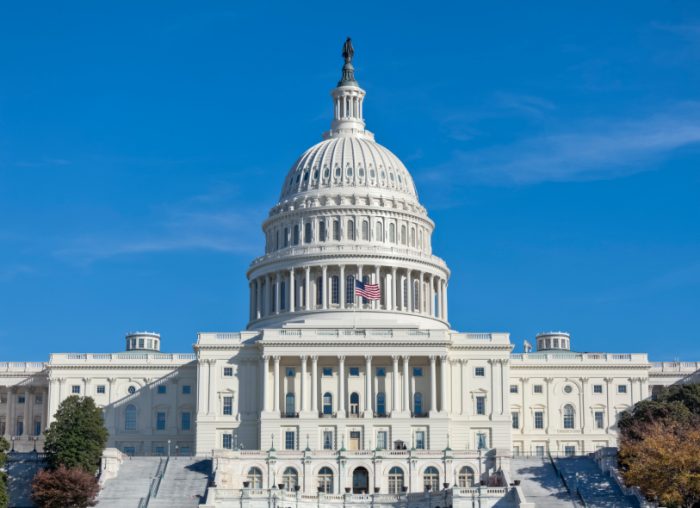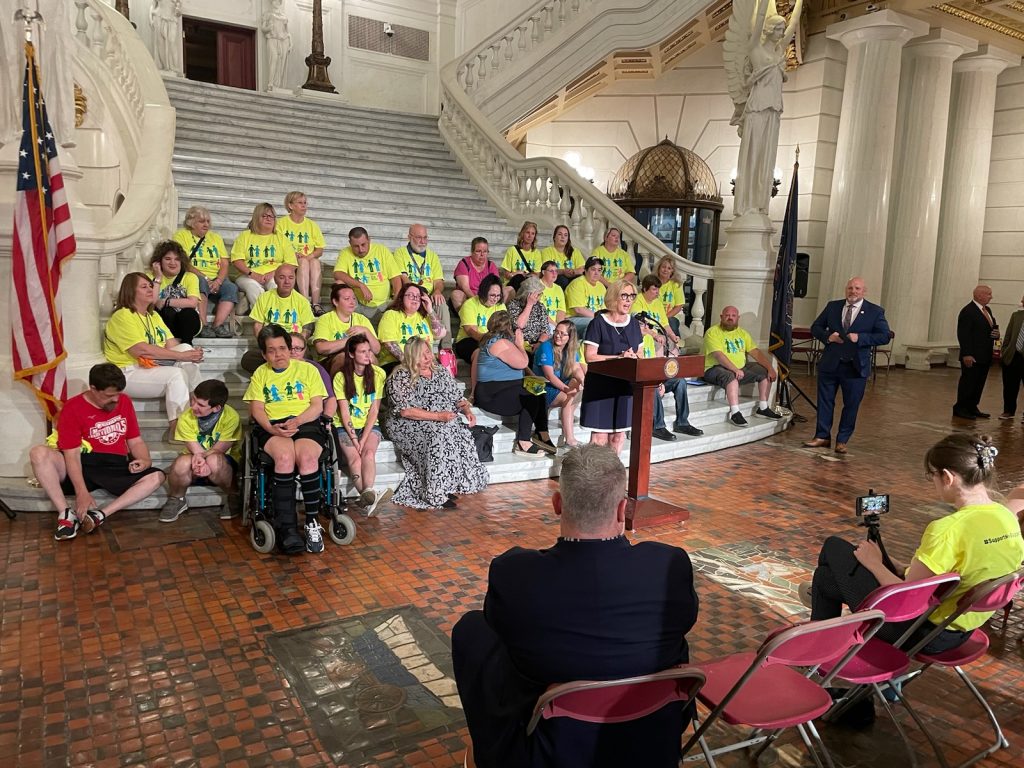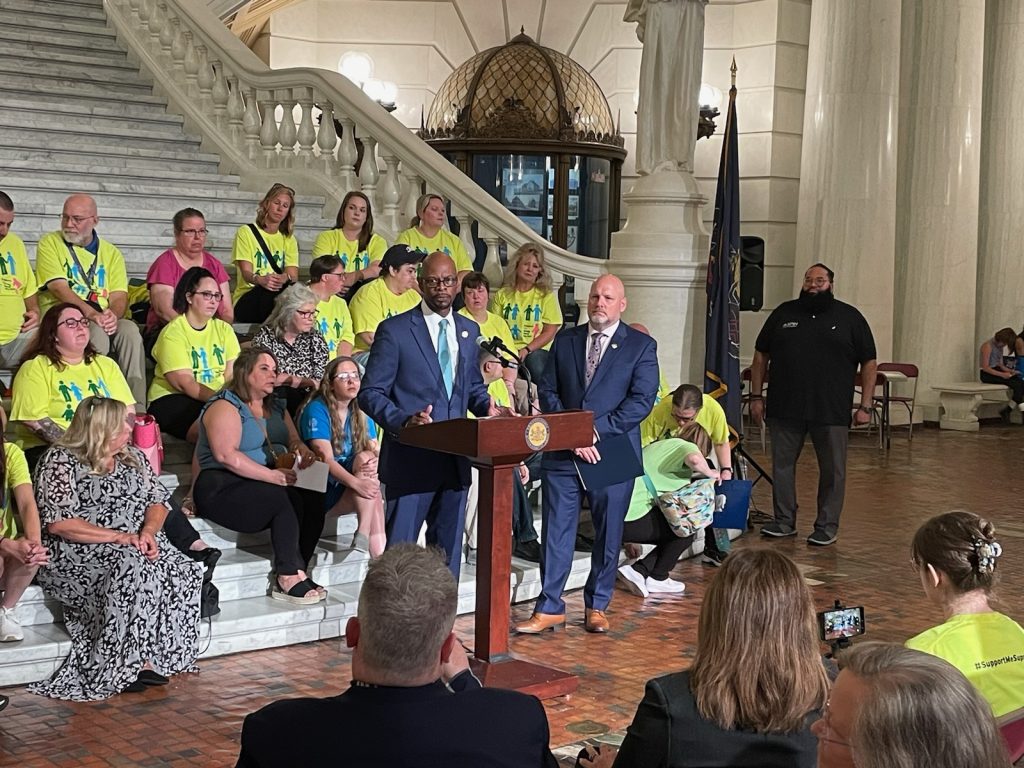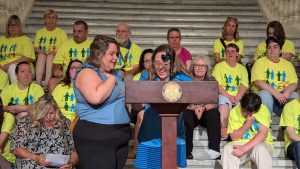With the passing of the FY 2024/25 PA budget last week, intellectual and developmental disabilities and autism (ID/A) associations are attempting to obtain clarity regarding its impact on services. The Governor’s Office announced, however, that the scheduled meeting to review these impacts has been postponed in order to allow the Department of Human Services (DHS) more time to analyze the details of the budget. The Governor’s Office shared the following message:
The Commonwealth’s enacted FY24-25 budget includes a philosophical shift in how Pennsylvania approaches service delivery for individuals with intellectual disabilities and autism – a much needed and overdue course change to invest in dignity and opportunity for this community. In February, Governor Shapiro announced the intent to tackle the waiting list for services with a new approach, the Multi-Year ODP Program Growth Strategy. Accompanying this structural change is a substantial investment in services for individuals with intellectual disabilities and autism totaling $354.8M combined state and federal funds – an investment that supports providers, direct support professionals, and families who help make our vision of Everyday Lives a reality.
Included in the total funding is $280M in federal and state funds, which averages 7 percent rate increases for FY24-25. DHS is continuing the analysis of the funds appropriated for FY24-25 for ID/A services and how this will reflect in final rates that will take effect for FY24-25. Also included is an investment of $74.8M in combined federal and state funds for FY24-25 to put the commonwealth on a path to end the emergency waiting list by offering 1,500 adults enrollment in the Consolidated or Community Living Waivers and altering the management of home and community-based services capacity.
In addition to rate increases, the enacted budget includes funding for the implementation of performance-based contracting and the addition of sign language interpretation services. Performance-based contracting is scheduled to be implemented for residential services beginning in FY24-25. Sign language services will be added to ODP’s home and community-based waivers beginning January 1, 2025, pending approval from the Centers for Medicare and Medicaid Services.
We know there is great interest to further discuss the impact of the enacted budget on your programs and services. DHS will provide additional information to stakeholders related to the necessary recalculation for the fee schedule rates for FY24-25 and performance-based contracting upon completion of the analysis.


























